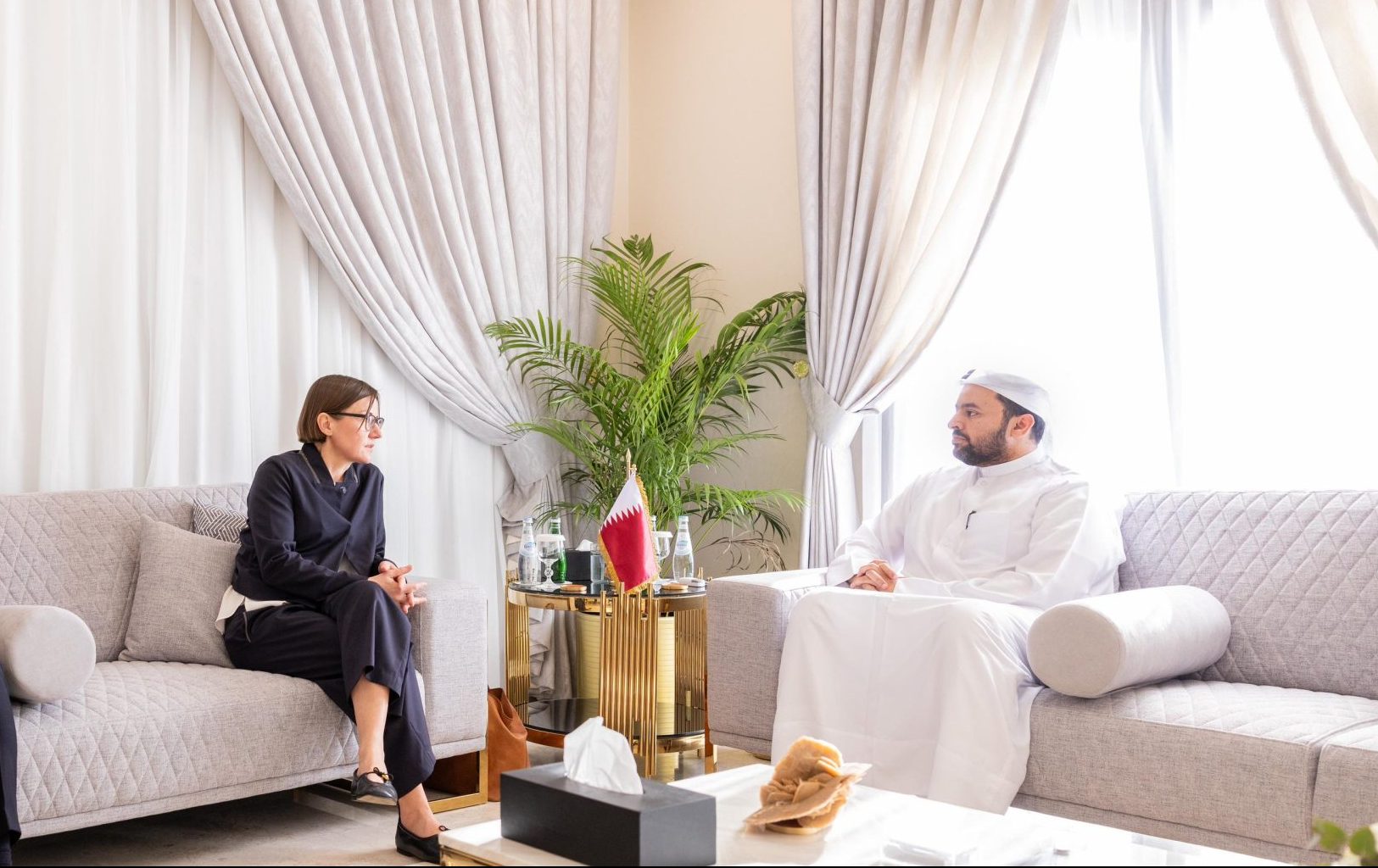Qatar has stressed the need to establish sustainable humanitarian corridors to enable the unhindered flow of aid into Gaza.
Qatar and the International Committee of the Red Cross (ICRC) discussed the latest developments in Gaza on Sunday, as the Gulf state continues to play a pivotal diplomatic role in hopes of achieving a ceasefire in the besieged enclave.
The discussions took place in Doha between Qatar’s Minister of State at the Ministry of Foreign Affairs, Mohammed bin Abdulaziz Al Khulaifi, and the ICRC’s President Mirjana Spoljaric Egger.
“During the meeting, the two sides discussed the latest developments in the Gaza Strip and the occupied Palestinian territories,” Qatar’s foreign ministry said in a statement.
Al Khulaifi stressed the need to establish sustainable humanitarian corridors to enable the unhindered flow of aid into Gaza, particularly the northern part.
A separate statement by the ICRC also said its president met Hamas’ Political Bureau chief Ismael Haniyeh, though it fell short of detailing the discussions. The global organisation also appealed “for the urgent protection of all victims in the conflict.”
“People in Gaza now face an alarming lack of food, do not have access to enough safe water, and far too many can’t access the medical care that they need. As soon as conditions allow, the ICRC is prepared to significantly step up its assistance,” the statement said.
The ICRC also called for “the immediate release” of all captives, noting that while it does not play a role in mediation talks, it works on implementing any agreements.
The organisation had helped facilitate the exchange of captives from Gaza and Palestinian detainees from Israeli prisons under last year’s pause.
Mediated by Qatar and Egypt, the truce lasted between November 24 and December 1, enabling the release of at least 110 Israeli and foreign captives from Gaza.
The deal led to the release of 242 Palestinian women and children from Israeli prisons, though Israel re-arrested at least 11 of those who were released since the beginning of the year.
No sign of breakthrough
Mediators have been working in hopes of reaching another deal in Ramadan that would see at least a pause in the hostilities on the ground. However, the holy month has started without any signs of a breakthrough in the talks.
The war has entered its sixth month, with more than 31,000 Palestinians killed by Israeli forces and 2.2 million suffering from a dire humanitarian catastrophe in Gaza.
Talks in Cairo last week between officials from Qatar, the United States, and Hamas have failed to achieve a breakthrough after Israel rejected the Palestinian group’s demand for a ceasefire.
Sources had told Al Jazeera on March 7 that “the mediators in Cairo tried to bridge the gap between Hamas and Israel, but their efforts did not succeed.”
The talks failed after Israel rejected Hamas’ demands for a ceasefire in Gaza, the complete withdrawal of Israeli forces, and the unconditional return of displaced Palestinians to their homes.
Hamas confirmed its delegation left Cairo on Thursday “to consult with the leadership as negotiations and efforts to stop the aggression and the return of the displaced continue.”
The discussions in Cairo came days after a meeting in Paris between officials from Qatar, Egypt, the U.S., and Israel in February.
The framework deal presented at the time entailed a six-week pause that would enable the release of the remaining 130 captives, including the bodies of those who died in Gaza, and the entry of aid into the besieged enclave.
Hamas’ key demand since last year has been a comprehensive ceasefire, something that Israel and the U.S. have opposed.
Since the beginning of the war, Israel cited releasing all captives as part of its goals, despite it killing at least 70 of them in Gaza.
The brutal war coupled with the complete Israeli blockade on Gaza led to unprecedented levels of starvation.
As of March 7, at least 20 people in Gaza died due to malnutrition and dehydration, including newborns and children, according to the local health authorities.
The United Nations has also recorded at least 14 incidents involving shooting and bombing aid seekers in Gaza.
The first such incident was reported on February 29, when Israel attacked Palestinians collecting aid at the Nabulsi roundabout, killing more than 100 people.
Pregnant women and breastfeeding mothers have not been able to keep their babies alive due to the absence of basic resources, especially in the isolated northern part.
Israel has been planning to expand its invasion to Rafah, where more than one million displaced Palestinians have been taking shelter since the beginning of the war.
The attack on the densely populated area would have dangerous implications and lead to a refugee crisis in neighbouring Egypt, which has limited the entry and exit of people over the past five months.







